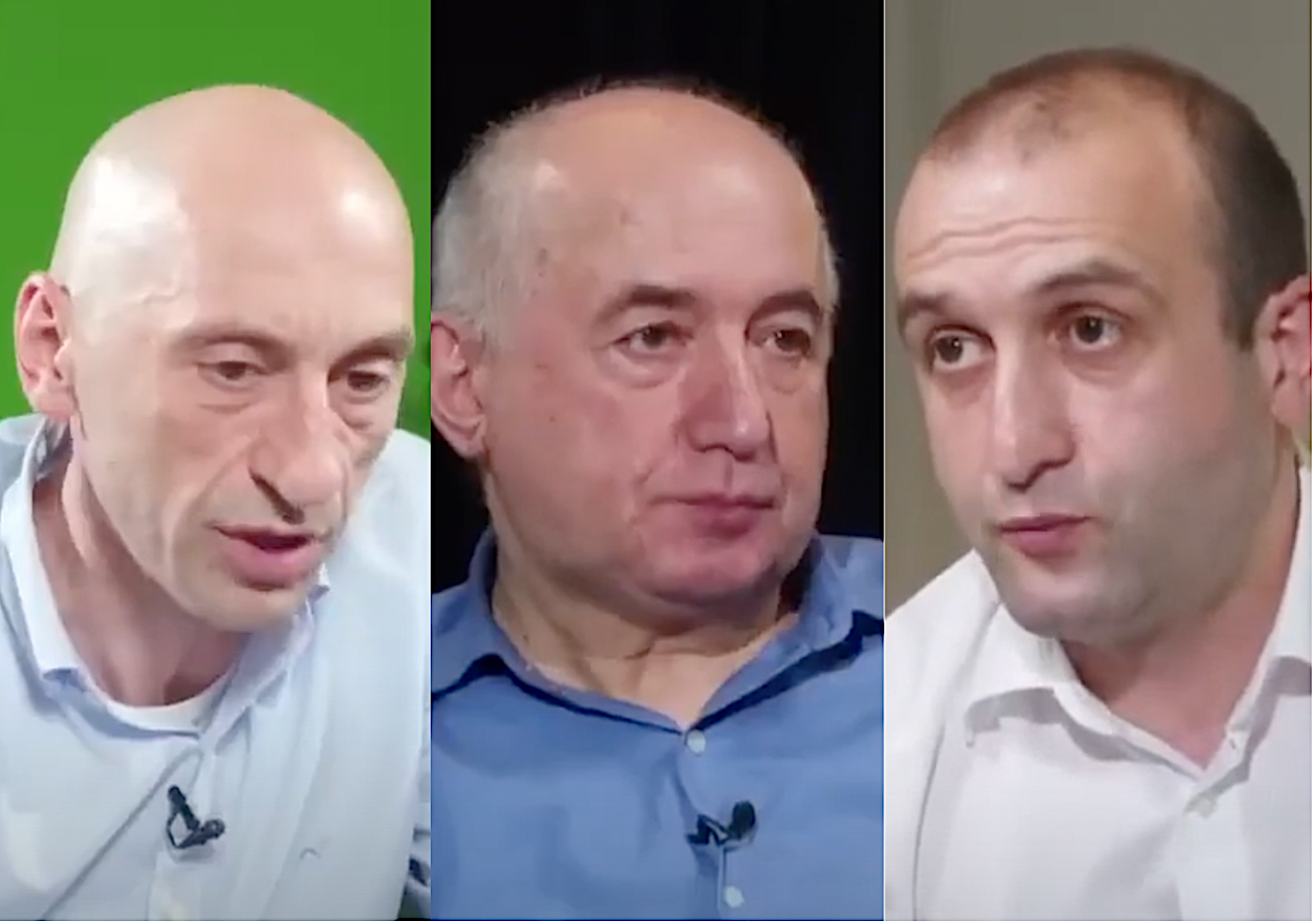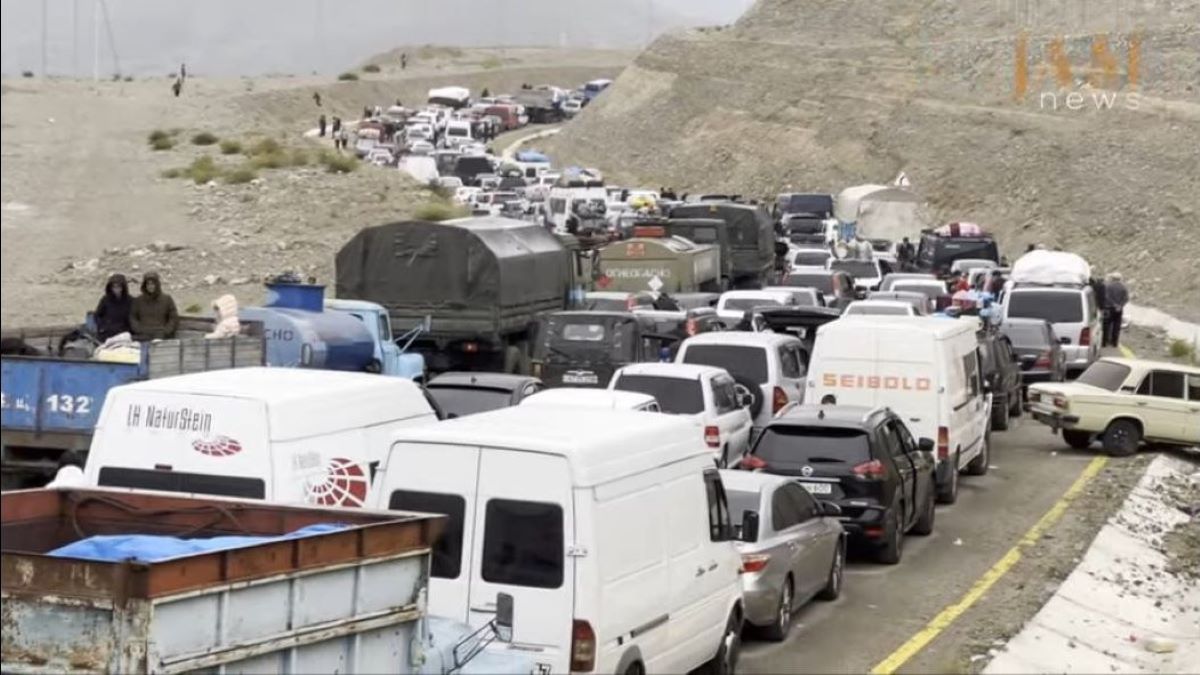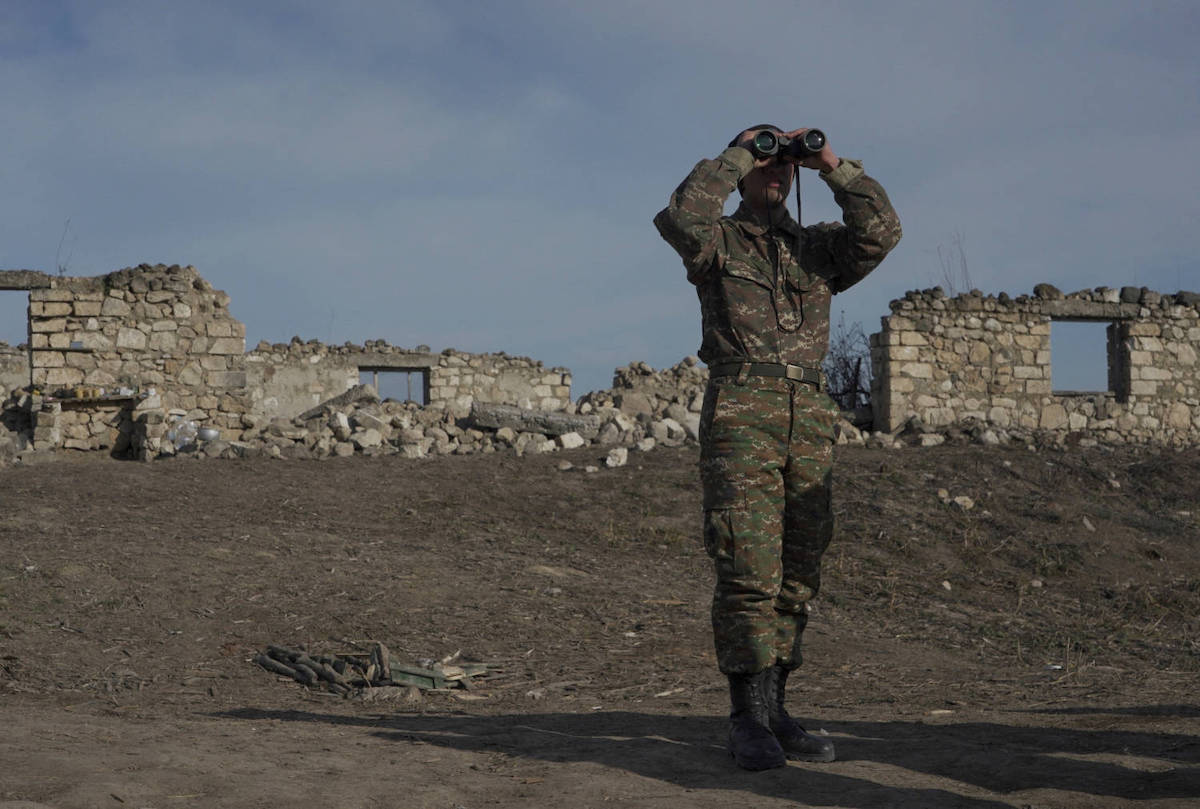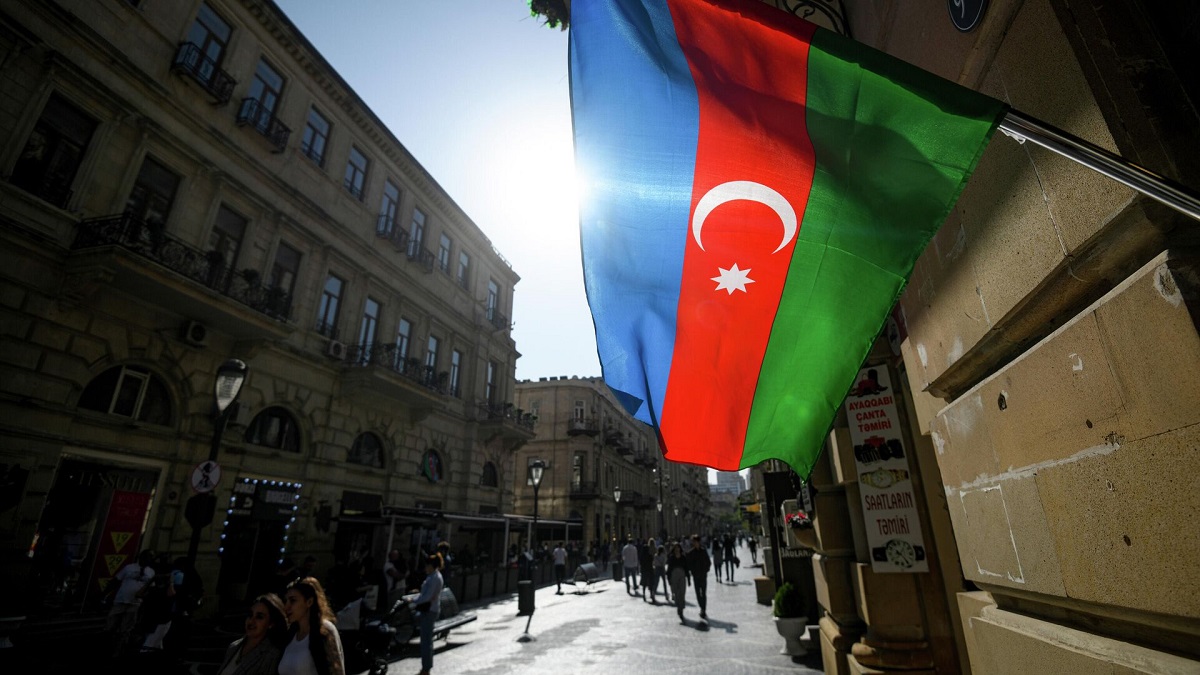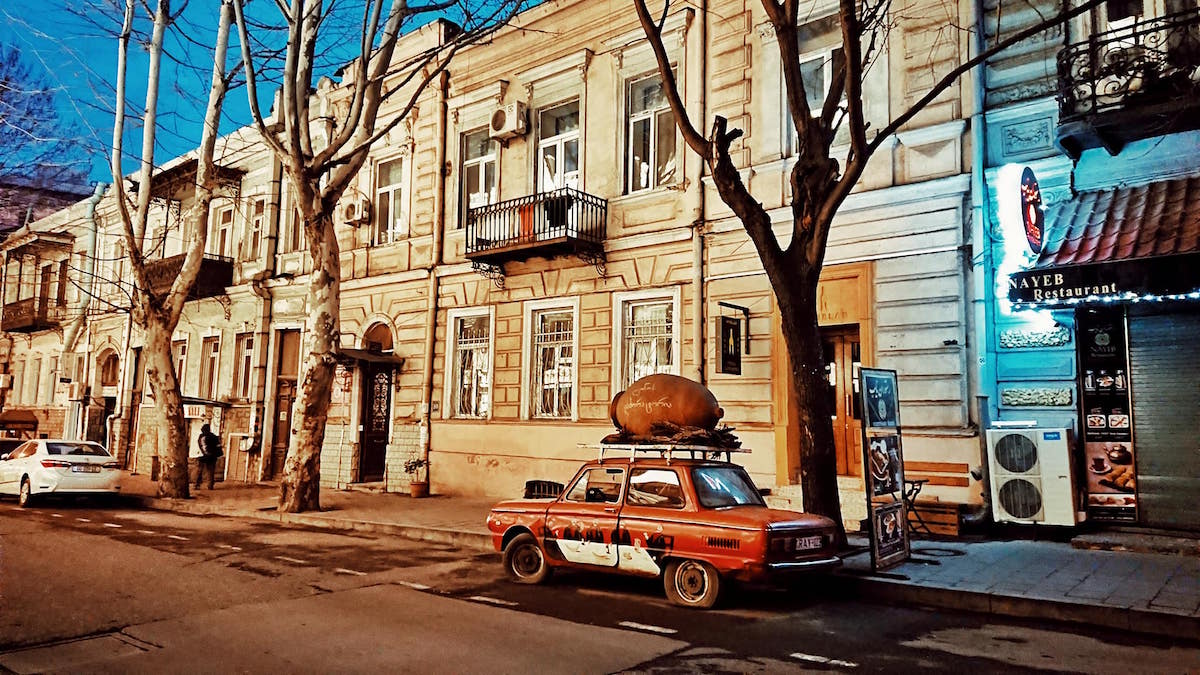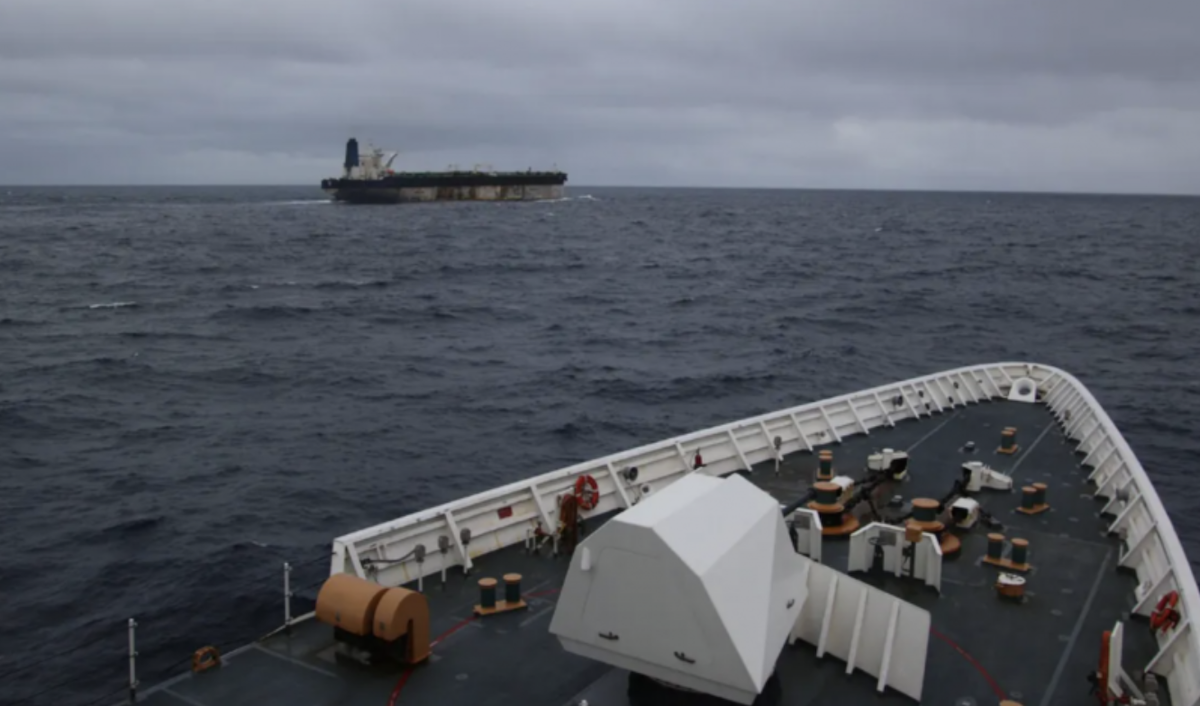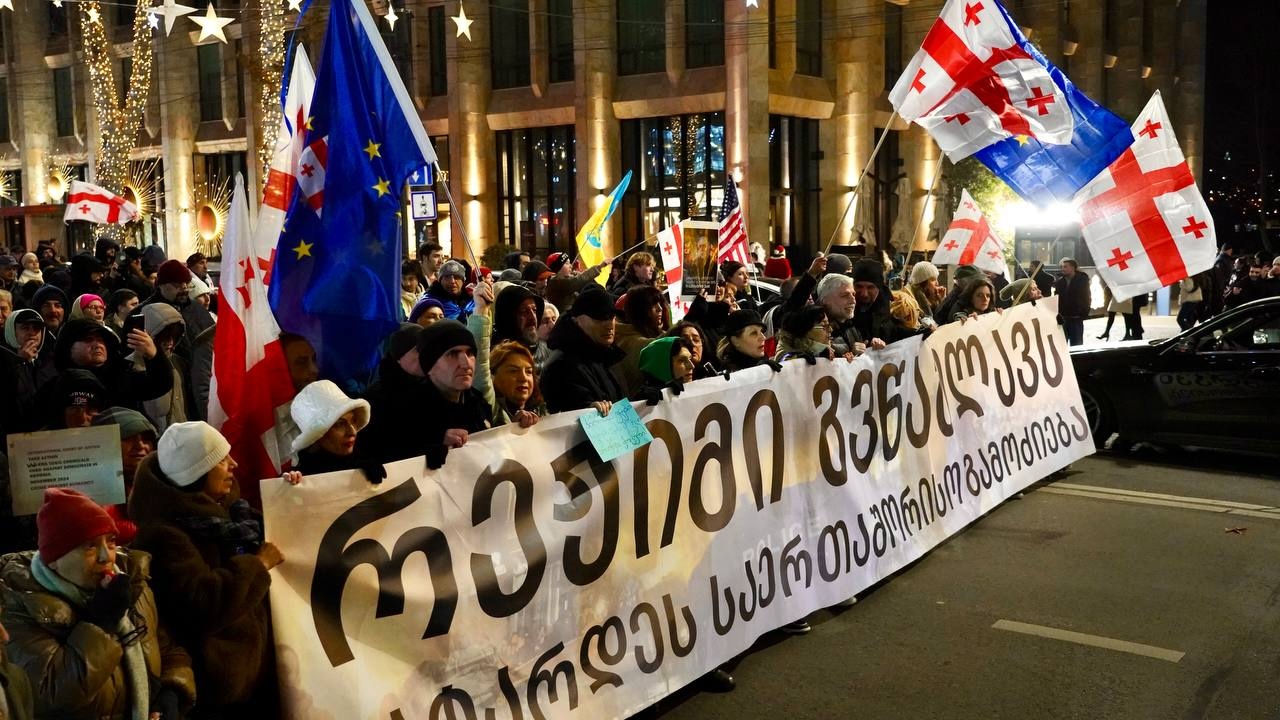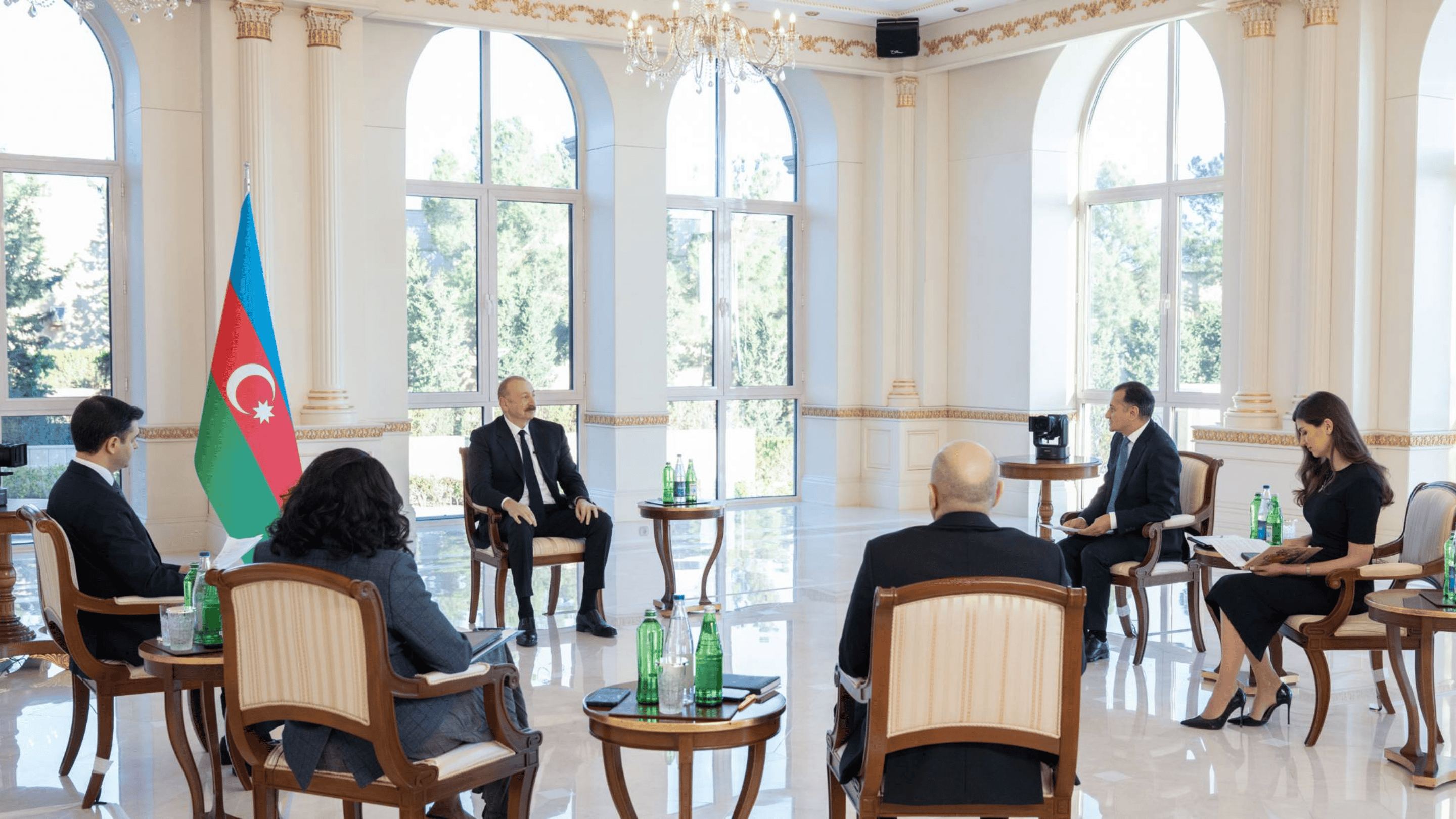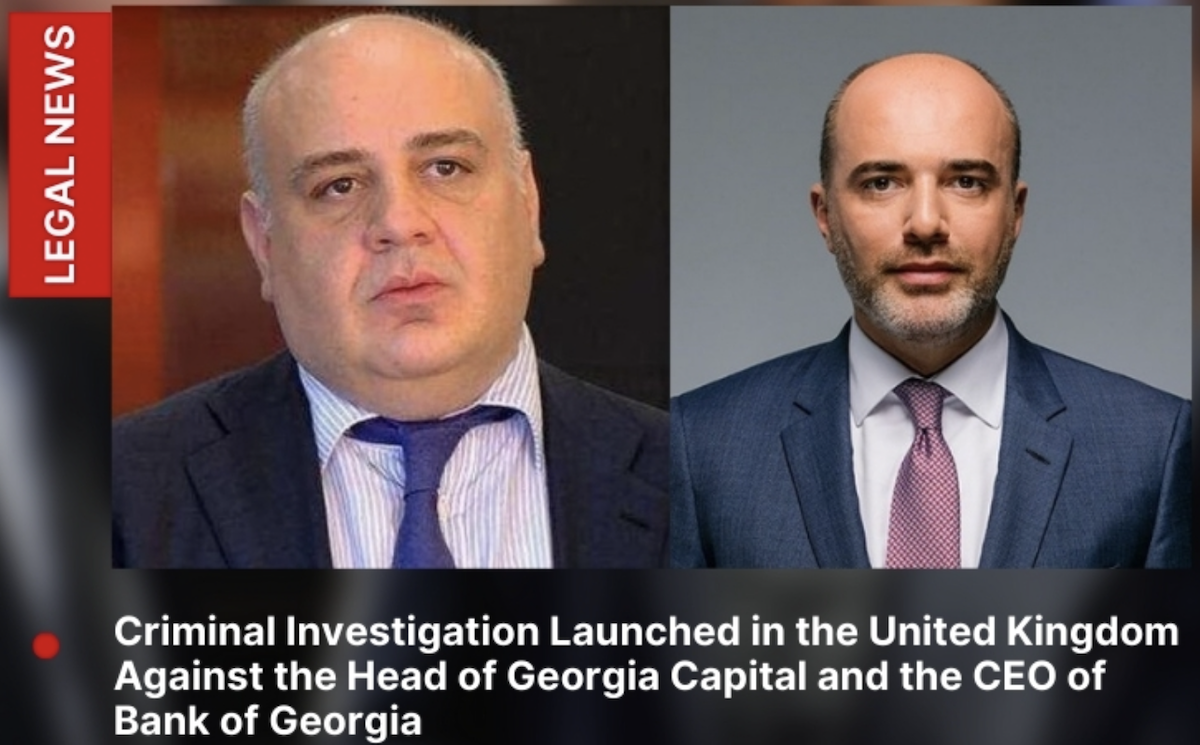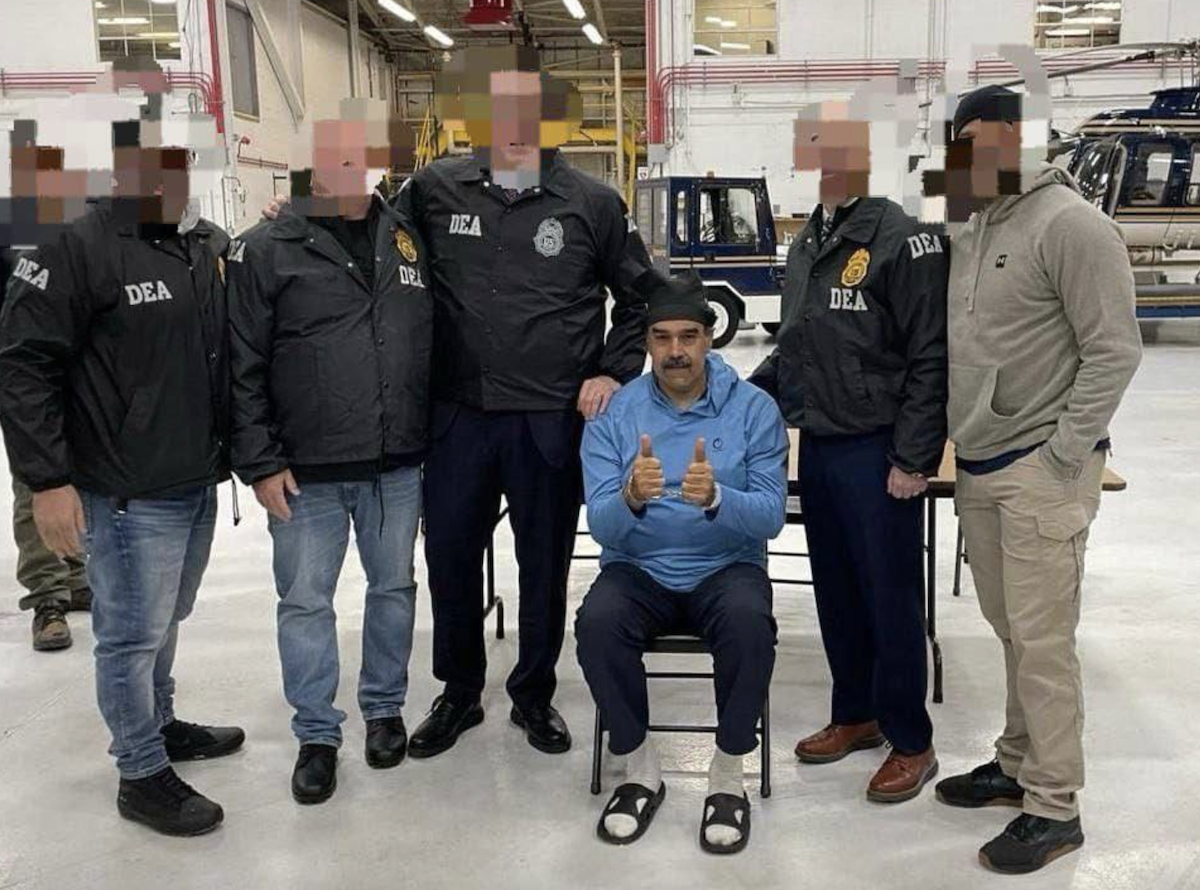“Abkhazia does not need a union state with Russia, but an international presence” - discussion, video
Abkhazia in the Union State with Russia
Editor of the newspaper “Chegemskaya Pravda” and editor of JAMnews in Abkhazia Inal Khashig, and historian and political scientist Astamur Tania, discuss the political challenges that Abkhazia needs to solve.
Brief abstracts:
- “It is unlikely that Abkhazia will join the Union State of the Russian Federation and Belarus, since it does not need it, and Russia and Belarus will not want to spoil relations with Georgia.”
- A “new USSR” is impossible, but the countries of the South Caucasus have good prospects for cooperation, and Abkhazia should become part of them.”
- “Abkhazia needs to strengthen the presence of international organizations in order to be able to participate in international economic projects.”
- “The authorities of Karabakh and Armenia tied their own hands in reaching an agreement with Azerbaijan, and their mistakes should be a lesson for Abkhazia.”
- “Relations between Russia and Europe will inevitably improve. And it is important that Abkhazia still exists by this time.”
“Neither Russia nor Belarus needs to spoil relations with Georgia”
Inal Khashig: After celebrating the 30th anniversary of Abkhazia’s victory [in the Georgian-Abakhz war of 1992-1993], Abkhaz politicians often turn to the topic of the Union State with Russia. How realistic is this at all, considering that Belarus has not recognized us? And to what extent does this contradict our legislation, given that there are government structures there.
Astamur Tania: If you look at it from the point of view of the interests of Abkhazia, then it is much more profitable for it to build bilateral relations with Russia and in the future, if possible with Belarus too. In union structures, due to their size and economic capabilities, the interests of Abkhazia will not be taken into account in this format.
As for realism, I don’t see any prospects other than PR around this topic. In our country, PR has become equivalent to real politics. Maybe this is beneficial to someone. We must understand that Alexander Grigoryevich Lukashenko is a very practical person. He will not take a single step without taking into account the interests of Belarus.
It is also unclear how we will be allowed into these structures. They were formed with great difficulty and struggle between Russia and Belarus – the entire regulatory and legal framework of their relations. It’s unlikely that they’ll just take us there and let us go.
And here the question is not only whether Belarus recognizes us. I have little faith that it will agree to recognize Abkhazia in the near future, because she maintains relations with Georgia. And Russia now has warming relations with Georgia. So neither Russia nor Belarus needs this.
If Belarus recognizes Abkhazia, Georgia will perceive this as another unfriendly step on the part of Russia, and not Belarus.
Let’s imagine hypothetically that Belarus recognized us. This does not mean that Abkhazia will join the Union State. This is even more problematic. No one will sacrifice their interests, the hard-won balance of relations between Russia and Belarus, and let in new members.
Belarus prefers a bilateral format of relations with Russia, and it does not need states such as Abkhazia and South Ossetia to be involved in this process. And for Russia these are additional difficulties.
- Abkhazia’s entry into the Union State: a “diversionary maneuver” or a no alternative option?
- “For Lukashenka it was a sad trip” – Georgian experts on his visit to Abkhazia
- Op-ed: how can Georgian-Abkhaz conflict be settled in the realities of today’s world?
“Abkhazia does not produce enough even for Sochi”
Astamur Tania: The development of economic cooperation is, of course, good. That our goods can be transported somewhere. But Abkhazia does not produce enough goods, even for the Sochi district, not to mention Moscow, or Belarus.
This issue does not fall within the sphere of great economic interests for Abkhazia. This would be more related to the interests of business rather than the state. And what agreements can our state sign with Belarus if it is not recognized by it?
“Creating something like a “new USSR” is impossible”
Astamur Tania: I don’t see any immediate prospects for creating unions like the USSR, I don’t see any grounds – neither ideological, nor economic and political. And no one is a Bolshevik or Marxist.
Rather, we are seeing reverse processes in the post-Soviet space. We see new conflicts. For example, in Central Asia very complex processes are taking place between states.
“The countries of the South Caucasus have prospects for cooperation”
Astamur Tania: For example, communication cooperation can develop in the South Caucasus. A meeting of the prime ministers of three South Caucasian countries was recently held in Tbilisi.
Following the meeting, Prime Minister Garibashvili floated the idea of a “Silk Road” from Central Asia to Azerbaijan and Georgia. Where there is a road, hydrocarbons and goods, this has worked since ancient times.
In light of the prospect of establishing cooperation between Azerbaijan, Turkey and Armenia through the Zangezur corridor, the importance of Georgia as a communication hub may decrease. Garibashvili also noted this. But he said that this can only be in the short term, and in the long term, good neighborly relations between the Transcaucasian republics will help promote their economic interests.
- Op-ed: why Georgia and Armenia need each other
- Stagnant economic ties in the South Caucasus: Three stories
Can Abkhazia become part of general regional processes?
Astamur Tania: Abkhazia is also part of the South Caucasus. And we must think about our role in these processes. What steps do you need to take to become a subject of this process? Before our eyes, this process is beginning to gain momentum.
But no one will create any supranational structures. And in Moscow, too, this idea has already been abandoned, because the realities are completely different.
It is problematic for Georgia to join the 3+3 format, but Georgia is considering the possibilities of cooperation in the South Caucasus triangle.
Inal Khashig: When thinking about Abkhazia, we must take into account that:
- Azerbaijan is not at all interested in Abkhazia;
- Georgia is blocking it from all sides;
- Armenia also lost interest in Abkhazia. On the one hand, because Karabakh is lost. On the other hand, relations between Armenia and Moscow have sharply deteriorated. The Pashinyan government is quickly changing its vector.
Astamur Tania: It’s not easy there either. In one region, states have competition, in another there is a coincidence of interests. So we see Iran in pro-Armenian positions, and France too. Azerbaijan has partnerships with Turkey and Israel, and Turkey has completely broken off diplomatic relations with Israel.
Without Russia, does Abkhazia have no prospects of being part of the processes in the region?
Inal Khashig: Abkhazia can become interesting to the region only if the 3+3 format takes shape, if Russia is involved in interaction in the region. Without Russia, Abkhazia simply has no prospects for active foreign policy and foreign economic processes.
Astamur Tania: It is clear that Russia is our main partner and patron. But for no one to have any interest in us, this is also not possible. This contradicts the logic of international relations.
Abkhazia’s participation has never been super relevant in global international processes. The South Caucasus in general is a periphery of international politics.
We see where the center of world politics is. This is the Middle East, where there is turmoil now, there is a lot of money in this region, and the interweaving of long-standing interests, and more important strategic communications pass through this region.
But this does not mean that Abkhazia is completely outside the attention of international politics. We see that processes are now taking place both in South Ossetia and Abkhazia in terms of cross-border cooperation.
Abkhazia in the Union State with Russia
“Economic processes must be transparent to have a chance of development”
Astamur Tania: Even if Abkhaz or even Georgian businesses have commercial interests, they cannot develop unless they become transparent.
For example, Georgia is always trying to avoid being accused of violating the sanctions regime. There must be a transparent situation on the border between Georgia and Abkhazia, that is, there must be international monitoring there. This could be the UN or other organizations. Otherwise it won’t work.
Our authorities are trying to develop trade and the prospect of transit, but this system will not work if there is not at least a neutral attitude to this from international organizations.
Therefore when our authorities take steps in relation to international structures, they must understand how these things are interconnected. You need to keep your finger on the pulse and be careful all the time. This should be our motto.
On the one hand, we must preserve the international contacts that we have, and on the other, use them to solve the problems facing us. Including issues related to the prospects for transit.
“For Abkhazia, participation in regional processes is a matter of maintaining sovereignty”
Astamur Tania: This is an important issue for Russia [participation in regional projects]. Both for Turkey and for the South Caucasus states.
And for Abkhazia this is a matter of maintaining sovereignty.
If you participate in some complex, diverse processes that have an economic justification, then at least they will talk to you.
This reduces the likelihood of using military force against Abkhazia. In this sense, the experience of Karabakh should be indicative for us. Because the inflexible position of both the Armenian and Karabakh authorities and the intensification of propaganda led to well-known events.
Abkhazia in the Union State with Russia
“The mistakes of Karabakh and Armenia are a lesson for Abkhazia”
Astamur Tania: Both Karabakh and Armenia tied their own hands in reaching an agreement. They were offered various options, including quite favorable terms for resolving the problem.
Refusal of dialogue, obstinacy and absorption in one’s own propaganda lead to such consequences. Therefore, we need to look at the world realistically, increase interest in ourselves from this world, talk about ourselves, and expand contacts with international organizations.
Because we live in a global world.
“Russia also cares about its own interests”
Astamur Tania: And Russia’s strategic interests are also not realized in a vacuum. Now it is trying to play a role in Middle Eastern politics. Despite the fact that Russia’s capabilities have been significantly limited in the last two years, it is involved in international politics.
Why else would Russia participate in the Geneva process? This means that Russian diplomacy sees significant prospects there. And it intends to realize its interests in the region.
Abkhazia in the Union State with Russia
“Abkhazia needs to strengthen the presence of international organizations, not reduce it”
Inal Khashig: Abkhazia does not need to curtail its international contacts, there are already few of them. There are a small number of international organizations through which there is some kind of connection with the world, besides Russia.
On the other hand, the process of harmonizing legislation with Russian legislation is currently underway. They say behind the scenes that Moscow has a desire for the presence of international organizations in Abkhazia to be severely limited.
Russia now has big problems with the West. But sooner or later this crisis will pass, and Russia’s cooperation with Europe will be resumed, maybe in 5-10 years, or maybe in a couple of years.
The Ukrainian crisis will be resolved, and perhaps one of the conditions will be the lifting of sanctions and the establishment of contacts. The situation will return to the position it was five or six years ago.
But Abkhazia’s hands are tied in this regard. In 2008, the UN mission collapsed. Now the UN is present in Abkhazia in the wrong capacity. With the winding down of this mission, Abkhazia ceased to be a party to the Georgian-Abkhaz conflict.
The Foreign Ministry regularly berates international organizations, calling them “agents of the West.” But if international humanitarian programs are curtailed – to combat AIDS, tuberculosis, etc., there are a lot of them – then this funding will fall on our budget. This is about a billion rubles [about $12 million] a year, and it is clear that Abkhazia can’t find that kind of money.
But it’s not even the financial side that confuses me. If we break contacts, we will no longer have such an opportunity to restore. This path, which connects us with the rest of the world through international organizations, will be overgrown with grass. We will limit ourselves.
Astamur Tania: And if we want to develop trade, the transit component, without international organizations this is simply impossible. Even before all the global events, Russia negotiated with Georgia to obtain consent to join the WTO.
To do this, it was necessary to somehow get around the fact that Abkhazia and South Ossetia are independent states. And we were designated as geographical points and hired a Swiss company. No work yet, but the contract is signed.
That is, it will not be possible to implement anything [transit projects] without international participation through such conflict regions, such as Abkhazia and South Ossetia, with their not fully recognized international status.
The Georgian authorities will definitely not agree to this. They steer a careful course to pass between Scylla and Charybdis. And most likely, they won’t do it at all.
Abkhazia in the Union State with Russia
“Russia and Europe – relations will inevitably improve. And it is important that Abkhazia still exists by this time.”
Astamur Tania: The reduction in international presence will further worsen our relations with neighboring Georgia. This time.
And secondly, we must know the history of Russia’s relations with European countries. We see that the interests of different countries in the so-called West are completely different, and they openly talk about it.
In the 18th century, this concept appeared – “international orchestra”. Russia has been part of this European policy since the 18th century. There is no doubt that a new balance of power will emerge between Russia and the United States, Russia and Europe, and they will come to cooperation.
They need each other. Europe needs Russia because it has important functionality in security matters and transit potential. So this cannot continue for five to ten years, it will have catastrophic consequences.
Probably,2024 will be devoted to the search for some format of cooperation between these countries, economic and political. No matter how they treat each other, we all live on the same globe and we have to negotiate with our neighbors, this is an immutable fact.
The main thing is that when all this happens, such a neighbor as Abkhazia still continues to exist. Because it is precisely the interests of such a unit as Abkhazia that can be neglected. The earth’s axis does not pass through us, and it does not depend on us how international politics turns. It is we who must adapt to it.
Therefore we do not need to show arrogance. And you need to increase your capabilities so that you are remembered at the right moment and not forgotten. I would like to call on our authorities and other political elites to do this, who periodically go into a propaganda frenzy and make careless, unpragmatic political statements.
Abkhazia in the Union State with Russia
Toponyms and terminology used in the publications, and views, opinions and strategies they contain do not necessarily reflect the views and opinions of JAMnews or any employees thereof. JAMnews reserves the right to delete comments it considers to be offensive, inflammatory, threatening, or otherwise unacceptable











